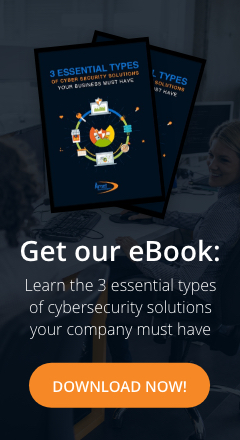Cloud computing is a common solution for many businesses today, as it helps optimize work processes while providing flexibility and scalability to companies as they need it. The cloud is net-centric; its flexible architecture allows building varied interfaces, and it can be accessed remotely or via mobile.
But despite all of its benefits, the cloud is still vulnerable to cybersecurity threats. Therefore, it’s imperative for businesses to understand what these threats are, so that they can address them proactively and effectively.
Threats in the cloud
Data breaches
Data breaches are the usual results of an attack, employee negligence, or error. It can be difficult to assess the true depth of a data breach because when data is compromised, it can be impossible to tell where that data will be brought or shown.
In 2017, Verizon Communications revealed that its most recent acquisition, former web giant Yahoo!, was attacked in 2013, resulting in the biggest data breach in history. All three billion Yahoo! user accounts were compromised, with digital thieves making off with full identities, names, birth dates, phone numbers, passwords, security questions and answers, and backup email addresses. The stolen Yahoo! data was found to be offered for sale by an Eastern European hacking collective in 2017 for $300,000 a copy, and evidence suggests that it had already been bought at least three times.
Unsecured APIs
An application programming interface (API) is a set of routines, protocols, and tools that are used to build software applications. APIs dictate how software components interact with one another. Unsecured APIs often lead to unsecured interfaces.
Unsecured interfaces tend to have security holes that can be identified and exploited by an external threat with malicious intent. If your cloud-based data or applications make use of proprietary API, they may be at risk.
What can you do?
Monitor user access and activity
Real-time monitoring can be tedious, but it will help reveal irregularities in user activity. The latter suggests that the user does not apply policy protocols and industry best-practices, nor comply with company standards, leading to vulnerabilities.
Each employee should only be allowed access to data that they need to perform their job. Anything more increases their vulnerability to a bigger loss or breach. Monitoring can also help detect breaches early, so remedial measures can be implemented.
Deploy authentication protocols
Strong passwords are a part of good authentication protocols. Strong passwords are built on length and complexity (see this article), and they help ensure that hackers have a hard time trying to get through to your account.
On top of good password habits, your users should also make use of two-factor authentication (2FA). This also serves as an extra line of defense by asking the user to manually authorize access through a separate device, making for a virtually impenetrable account.
Have a data backup and recovery plan
Data backup and recovery planning will help you retrieve your data with as little fuss as possible. It will also ensure that you can continue operating your business even in the event of a disaster.
Leave it to us
It can be daunting for small- to medium-sized businesses (SMBs) to implement cloud security measures. Arnet’s cybersecurity service not only covers the essentials of cloud and data protection; it also provides threat intelligence and ID monitoring capabilities, so you’ll know in real time if any of your company’s credentials have been compromised. Arnet’s cybersecurity service is robust and up to date with industry-best practices, so you can enjoy top-tier security at all times.
Arnet Technologies is the answer to Greater Columbus’ cybersecurity needs. Reach out today to schedule your cybersecurity consultation!

